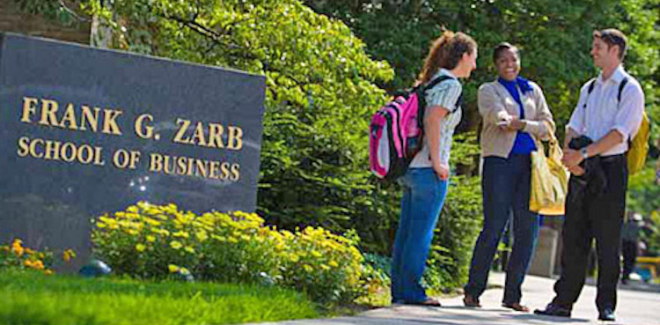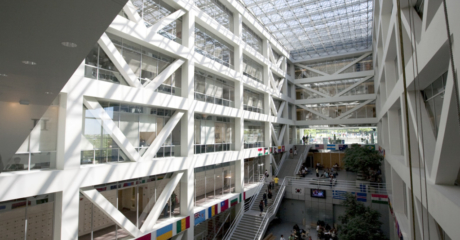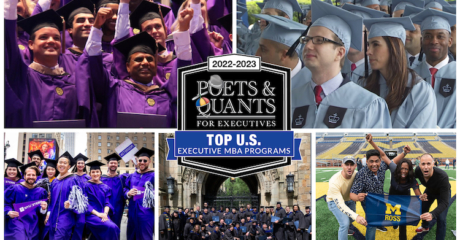Hofstra University’s Executive MBA in the Frank G. Zarb School of Business is designed for experienced professionals to distinguish themselves as proven leaders. The Zarb EMBA can be completed in just 11 months through an efficient combination of online courses and five select on-site classes on Saturdays, either on-campus or in New York City. Students will build on their career achievements with a rigorous leadership assessment and individualized executive coaching, take part in a global practicum, and network with high-achieving peers in a variety of industries.
What is taught online and how it is taught varies from professor to professor who are allowed wide discretion in how they use long distance learning. Some make intensive use of video lectures, while others ask students to delve into Harvard Business School case studies which would later be discussed in more detailed fashion during the Saturday class sessions. Cohorts are small, with the most recent cohort numbers being just ten diverse professionals.
Hofstra’s all-inclusive tuition cost includes the international practicum that has brought EMBA students in the past to Japan, China, South Africa, Argentina, and Brazil. The trip is a clear highlight of Hofstra program, bringing classroom discussions about global business to another dimension.









